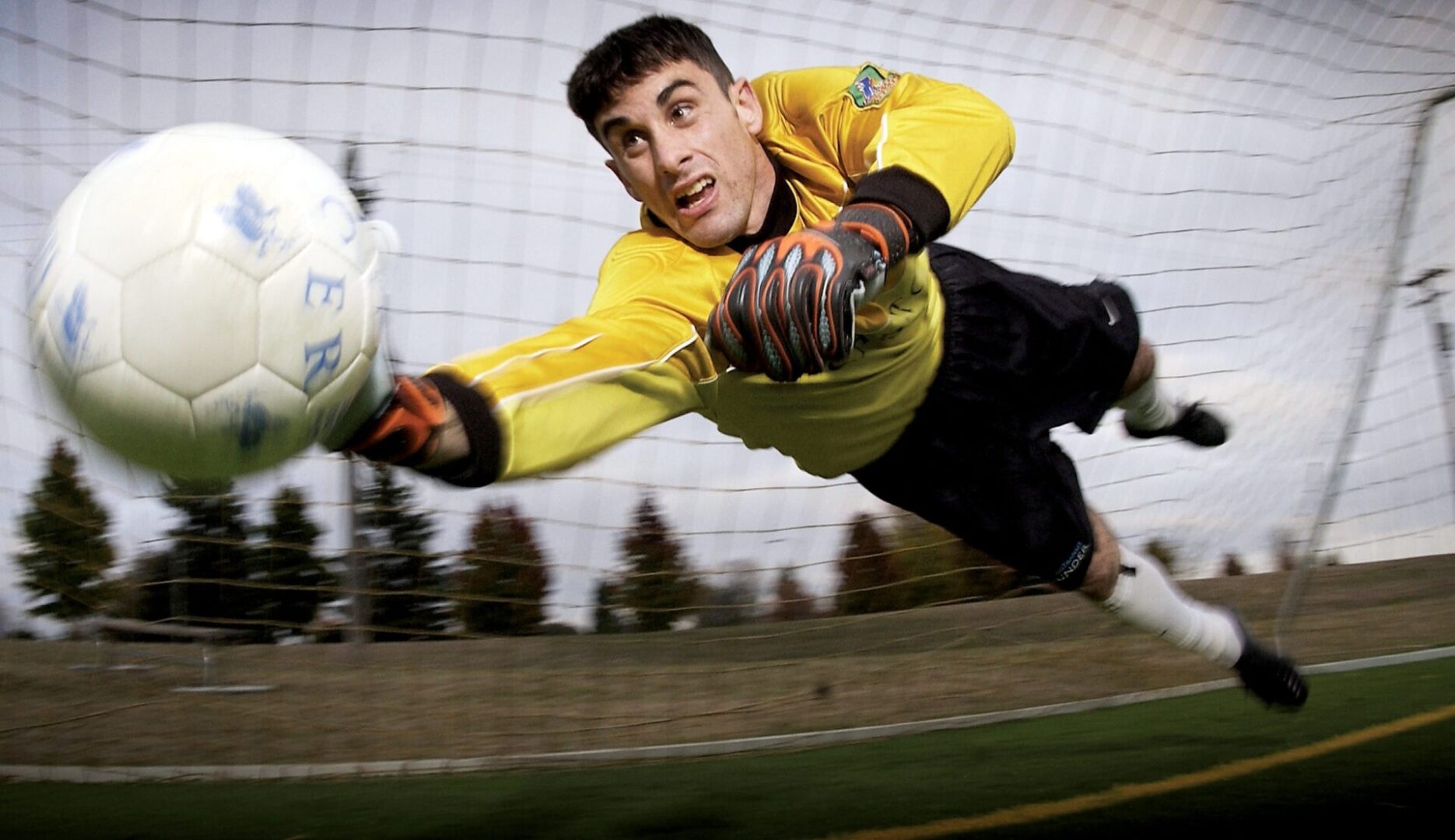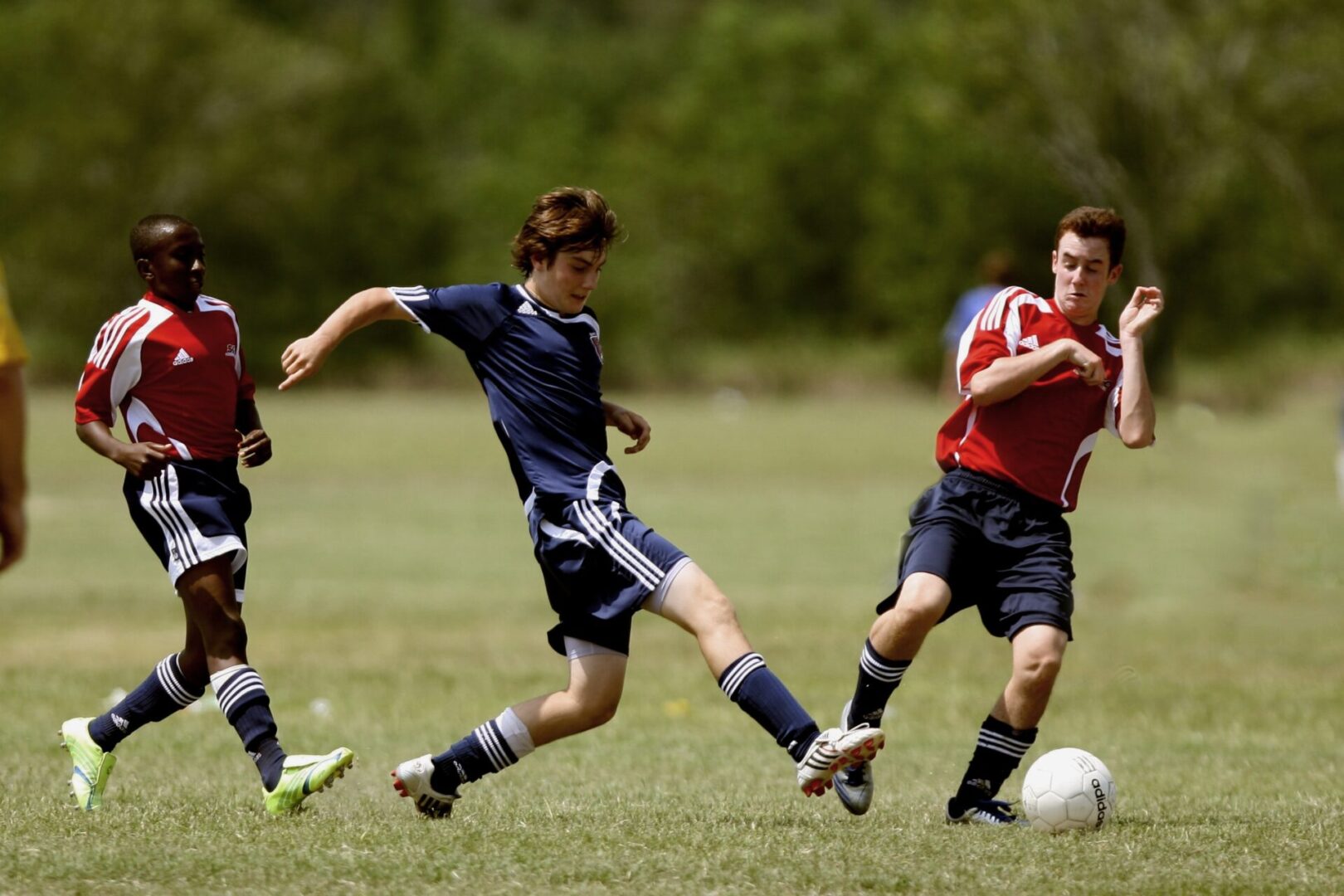







PALMER SOCCER CLUB WEATHER POLICY
For Scheduled Games
The Palmer Soccer Club (PSC) will only cancel games when, on Site at the field complex, there is lightning visible WITH accompanying thunder less than 30 seconds after. We do not make this call until closer to game time. If this occurs during scheduled matches, then all activities are immediately suspended (rescheduled for a later date WHEN POSSIBLE). Such a cancellation only applies to the current time slot of games as conditions may improve for the later hour. PSC will email affected teams and post on Facebook any time there is a cancellation. If you don't hear that there is a cancellation, assume games are still on.
PSC shall adhere to the practice of canceling soccer activities whenever lightning is visible in the atmosphere and the associated thunderclap occurs in less than 30 seconds. In such instances, games are immediately canceled, and all individuals should seek shelter. Canceled games are not resumed after a waiting period. However, games that take place later in the evening may still be held if lightning has subsided.
For Practices
Coaches should follow the above policy as well for practices. However, because the only group affected by a change in practice plans is that specific team, coaches/parents can have a lower threshold for when to not hold their planned practices.

Additional Info About Weather, Air Quality, Lightning, and Safety
While games are still played in rainy or hot weather, there are some situations that may result in the cancellation or delay of games. These are typically limited to lightning and air quality. In most cases, the determination regarding the cancellation of matches will be withheld as long as possible, in case of conditions improve. PSC will make every effort to make such decisions and communicate them to all families, coaches, referees, etc., no later than one hour before a scheduled match.
In some circumstances, games may be canceled earlier in the day if conditions are bad enough and/or have little to no chance of improving in time for games. Communications will be sent out in as many ways as possible (email, text alerts, Facebook, website, phone calls, and signage at the fields). There may be times where matches begin as normal but must be canceled during the course of play if conditions become unsafe. At these times, PSC staff will attempt to quickly patrol the field complex alerting all participants of the situation. Due to the schedule of the summer, canceled matches may not be rescheduled, but if feasible, they will!
PSC shall adhere to the practice of canceling outdoor soccer activities whenever the Air Quality Index is at a rating of Unhealthy or worse. AQI information will be obtained via established borough, state, and federal websites. This data will be used for reference, with ultimate decisions being made by PSC staff on-site. Game cancellation decisions will be made and communicated to members as soon as possible for all scheduled games that night.
It is important to note that when soccer activities have been canceled for any nature-related risk management purposes as outlined above, any players, teams, coaches, etc., that elect to hold their own events are doing so at their own risk. Such activities are not PSC-sanctioned and thus are not covered under program insurance.
Referees and Coaches should adhere to the following
If lightning is within five miles, with or without hearing thunder, the game(s) or practice(s) should be suspended, and shelter sought. A lightning detector or similar app can identify the distance accurately but may not be available. A rough guideline is to measure the time between the lightning flash and hearing the corresponding thunder. If it is 30 seconds or less, seek shelter. It may not be possible to determine which lightning strike generated which roll of thunder. A simple rule: If you can see it or hear it, clear it!
PSC recommends that participants seek immediate shelter in their automobiles or a designated severe weather shelter if there is one nearby. Smaller, open structures, tents, trees, isolated areas, etc., should be avoided. Cars, with windows, rolled up or buses, can provide good shelter. Avoid contact with metal or other conducting materials to the outside surfaces. Do not stay in open, unprotected areas. Games should not be restarted for at least 30 minutes after the last lightning strike is seen or a thunder roll is heard. Tournaments should inform participating teams of notification and evacuation plans and shelters near the playing sites.
Hot Weather
Heat is a problem when it prevents the body from cooling itself. The hotter the body gets, the more likely it is to increase fatigue levels, develop cramps and increase the possibility of heat exhaustion and heatstroke. The hotter and more humid the weather, the faster these problems can develop. Temperatures as low as 65 degrees, with a relative humidity of 100%, can be serious.
- A heat index chart should be available to every coach and referee (www.nws.noaa.gov)
- Games need to be adjusted as the heat index rises:
- Mandatory water breaks
- Change games to quarters instead of halves
- Shorten the games
- Provide training to coaches to teach the signs of heat exhaustion and heatstroke.
Club administrators and tournament officials are responsible for monitoring the heat index (by weather radio, online, or the Weather Channel) and keeping the participating teams and game officials informed of the heat index. Coaches are encouraged to also monitor the conditions. The following are recommended when there is a possibility of a dangerously high heat index:
Heat Index
Recommendations
Up to 84°
Normal Play
85° - 89°
Mandatory two-minute water breaks per half with running time.
90° - 99°
Mandatory two-minute water breaks per half with running time. Each half shortened by five minutes.
100° - 104°
Mandatory two-minute water breaks per half with running time. Each half shortened by ten minutes.
105°+
Suspend Play
For further information, please check the NOAA website for additional information in regards to how temperature and humidity combine to make it feel hotter.

Cold Weather
For fall play, the cold becomes a factor. Players should be allowed to dress in appropriate clothing. Field conditions will be affected by freezing rain, sleet, and snow. The ground may become frozen and be unsafe for play. Temperature means either ambient (still air) or wind chill index. Check weather radio frequently for temperature and weather conditions.
Cold Index
Recommendations
46° and higher No Change
45° and lower-- Allowed Use of Additional Clothing (listed Below)
40 and lower-- Shorten each half by 5 minutes and allow the use of additional clothing
35 and lower-- Suspend Games
Acceptable Additional Clothing
- Layered beneath uniform (for example)
- long sleeves
- long pants
- additional socks
- Gloves or mittens
- Stocking caps without straps
- Sweat pants or shirts - In the case of extremely cold weather, maybe worn underneath the uniform, provided the entire team uses the same color sweats
- Jackets may be worn under the uniform so that referees can see the player's number in the event of a card being issued.
Clothing NOT Allowed:
- Hooded sweatshirts (hoods and strings present possibility of being grabbed)
- Ear muffs (headbands OK) Plastic or metal part crossing the top of the head presents a potential hazard
- Scarves (Risk of Isadora Duncan Syndrome)
More Notes about Cold Weather:
- Players on the sidelines should remain dressed (if in warm-ups) until they enter the game.
- Players coming off should towel off (if sweaty) and get dressed quickly.
- No one should sit or lie directly on the ground. The heat is lost faster to the ground than to air. Blankets and chairs are recommended.
- Keep hydrated-avoid caffeine and carbonated drinks.
- Keep an eye on field conditions (wet, icy, etc.). Cold, wet conditions can quickly change the field from safe footing to slippery.
- Keep an eye on the goalie—usually, the player who gets coldest first, not running or moving like a field player.
- Referees and coaches should discuss whether and fields pre-game.
- The safety and health of the players come first.
